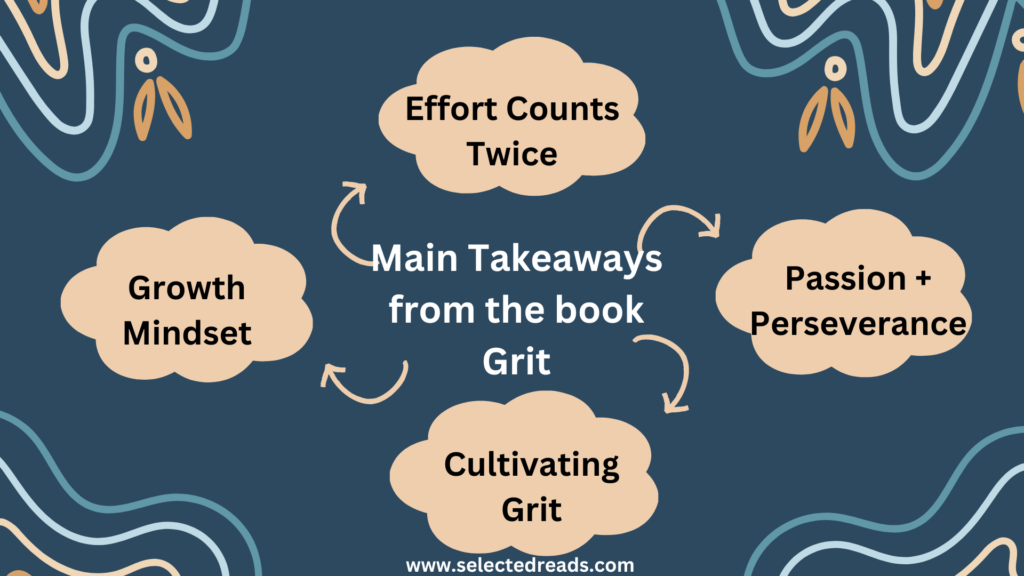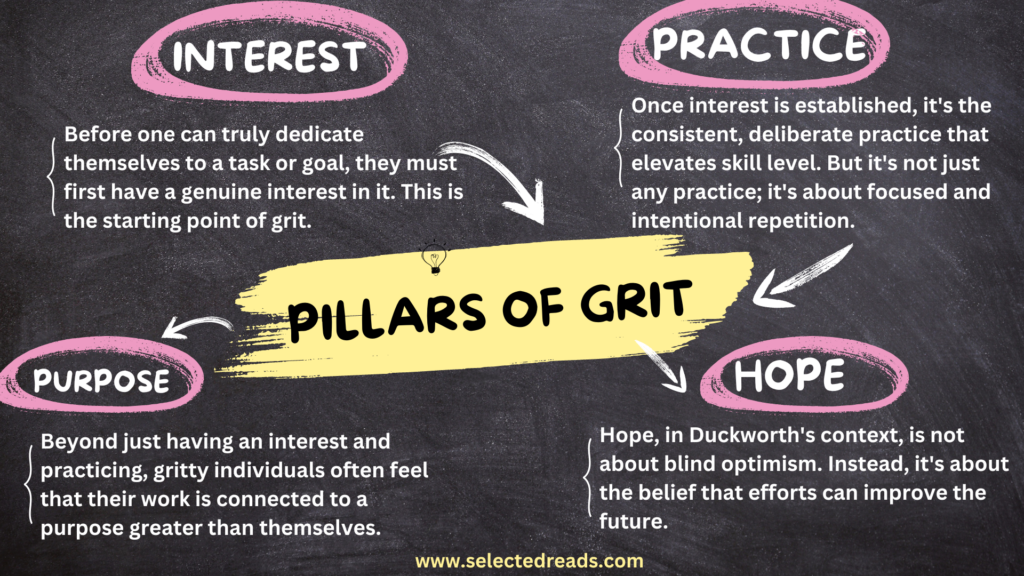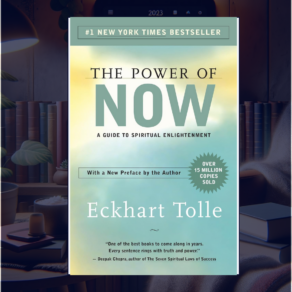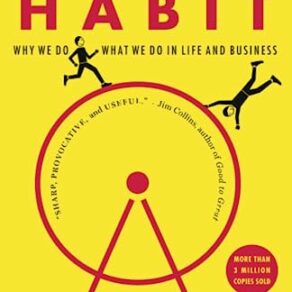In our success-driven society, talent is often spotlighted as the golden ticket to achievement. From prodigies who excel naturally to those deemed “naturals,” we’re constantly reminded of the allure of innate ability. However, psychologist Angela Duckworth challenges this narrative, introducing us to the compelling world of “grit”—a trait she argues is often more instrumental to long-term success than mere talent.
In this blog post, we’ll not only delve into the main idea of Duckworth’s groundbreaking work but also explore the foundational pillars of grit: interest, practice, purpose, and hope. Through a detailed summary, we’ll unravel why sustained effort might indeed overshadow raw talent.
We’ll also offer engaging discussion questions to foster deeper reflection on the concept of grit. And, to truly appreciate the essence of Duckworth’s argument, we’ll pepper our exploration with insightful quotes from the book itself.
Related: The Person You Mean to Be: How Good People Fight Bias
What is the main idea of grit the power of passion and perseverance?

The main idea of “Grit: The Power of Passion and Perseverance” by Angela Duckworth is that long-term success and achievement are not solely determined by innate talent or intelligence. Instead, a combination of passion and perseverance, which Duckworth terms as “grit,” plays a crucial role in achieving long-term goals.
Key points from the concept of grit include:
- Effort Counts Twice: Talent alone isn’t enough for success. Effort plays a critical role in both developing skill and turning that skill into achievement.
- Passion + Perseverance: True grit encompasses both a deep and enduring passion for one’s long-term goals and the perseverance to achieve them, even in the face of adversity.
- Growth Mindset: Individuals who possess grit often have a growth mindset, believing that abilities and intelligence can be developed over time. This mindset, as defined by psychologist Carol Dweck, encourages resilience and determination.
- Cultivating Grit: While some people may naturally have more grit than others, it’s a trait that can be developed and nurtured over time.
In essence, Duckworth’s “Grit” challenges the commonly held belief that natural talent is the primary determinant of success and posits that commitment, passion, and perseverance are equally, if not more, important.
What are the four pillars of Grit?
Certainly! Angela Duckworth’s concept of “grit” is deeply rooted in these four pillars: interest, practice, purpose, and hope. Each pillar plays a critical role in the development and manifestation of grit.

- Interest:
- Before one can truly dedicate themselves to a task or goal, they must first have a genuine interest in it. This is the starting point of grit.
- Finding something that you love and are deeply passionate about is crucial. When you have a genuine interest in what you’re doing, it doesn’t feel like a chore. Instead, it becomes something you’re intrinsically motivated to pursue.
- However, Duckworth notes that passion isn’t just about the intensity of one’s feelings but also about the consistency over time. It’s about staying interested in the same thing for years.
- Practice:
- Once interest is established, it’s the consistent, deliberate practice that elevates skill level. But it’s not just any practice; it’s about focused and intentional repetition.
- Duckworth speaks about the idea of “deliberate practice,” a term coined by researcher Anders Ericsson. It’s about continuously pushing oneself out of their comfort zone, seeking feedback, and refining one’s approach.
- This kind of rigorous practice is what leads to mastery. Gritty individuals practice with an aim to improve, not just to get done with a task.
- Purpose:
- Beyond just having an interest and practicing, gritty individuals often feel that their work is connected to a purpose greater than themselves.
- It’s about having a deeper meaning and motivation for what you’re doing. When individuals feel their work contributes to the well-being of others or serves a greater cause, it provides a powerful motivation to persevere even when faced with challenges.
- Purpose transforms work from being just a job or a hobby into a calling.
- Hope:
- Hope, in Duckworth’s context, is not about blind optimism. Instead, it’s about the belief that efforts can improve the future.
- Gritty individuals possess a resilient form of hope. Even when they face setbacks, they believe in their ability to get up and continue pushing forward. This kind of hope is not naive; it’s rooted in the belief that one’s own efforts can bring about change.
- Hope is what keeps gritty individuals going in the face of adversity, believing that their efforts will make a difference in the end.
Together, these four pillars culminate in the development of grit, which Duckworth argues is a significant predictor of long-term success, often more so than raw talent alone.
Grit: The Power of Passion and Perseverance
Certainly! Here’s an extended summary of “Grit: The Power of Passion and Perseverance” by Angela Duckworth, incorporating your sentiments:
One of the most enlightening books I’ve had the pleasure to immerse myself in recently is “Grit: The Power of Passion and Perseverance” by Angela Duckworth. The book is a captivating exploration of why some individuals achieve outstanding success while others, with seemingly equal talent, falter.
Duckworth challenges the traditional notion that innate talent is the sole determinant of success. Instead, she posits that a combination of passion and perseverance—what she terms as ‘grit’—is the real predictor of success. Through a blend of personal anecdotes, interviews, and extensive research, she unpacks the essence of grit and its pivotal role in achieving long-term goals.
One of the key insights from the book is the idea that effort counts twice. This means that effort has a dual role, influencing both the skills we acquire and the achievements we realize from those skills. It’s not just about working hard; it’s about the commitment to your passion over the long haul.
Duckworth also delves into the growth mindset, a concept coined by Carol Dweck. Individuals with a growth mindset believe that abilities and intelligence can be developed with time and effort. This mindset, Duckworth suggests, is foundational to grit. When one believes they can grow and evolve, they’re more likely to persevere through challenges.
The book also provides actionable insights into how one can cultivate grit, both in themselves and others. From fostering interest and deliberate practice to finding purpose and maintaining hope, Duckworth lays out a roadmap for anyone looking to enhance their grit quotient.
Having thoroughly enjoyed reading “Grit,” it’s evident to me that Angela Duckworth has tapped into a fundamental aspect of human achievement. The book not only reshapes the way we think about success but also inspires us to seek our passion and persevere through the inevitable challenges that come our way. In an era where instant gratification is the norm, “Grit” serves as a timely reminder of the age-old virtues of passion and perseverance.
Grit Discussion Questions
Here are some discussion questions for Angela Duckworth’s “Grit: The Power of Passion and Perseverance”:
- Defining Grit: How does Duckworth define “grit“? How is it different from other qualities like perseverance or resilience?
- Talent vs. Grit: Duckworth argues that grit can be more important than talent in achieving long-term goals. Do you agree or disagree with this perspective? Why?
- Interest & Passion: How important is genuine interest or passion in developing grit? Can one be gritty without a deep interest in their pursuit?
- Deliberate Practice: How does “deliberate practice” differ from regular practice? Can you think of any personal examples where deliberate practice played a role in your achievements?
- Purpose and Calling: Discuss the role of purpose in fueling grit. Can something be a mere interest for one person and a calling for another?
- Hope and Optimism: How does Duckworth’s interpretation of “hope” differ from general optimism? Why is this kind of hope essential for grit?
- Development of Grit: Can grit be taught or cultivated? If so, how can parents, educators, or employers foster grit in children and adults?
- Grit Scale: Duckworth introduces a “Grit Scale” to measure an individual’s level of grit. Did you try evaluating yourself? Were you surprised by your score?
- Critics of Grit: Some critics argue that emphasizing grit might downplay other important factors like opportunity and support. What are your thoughts on this?
- Personal Reflection: Can you identify a time in your life when you displayed grit? What were the challenges, and how did you overcome them?
- Grit in Organizations: How can organizations benefit from understanding and fostering grit? Do you think it’s a quality that employers should value in their employees?
- Limitations of Grit: While grit can lead to success, are there potential drawbacks or limitations to being too gritty?
- Role Models: Who are some public figures or personal role models you can think of who embody the concept of grit? What can we learn from their journeys?
- Growth Mindset: Duckworth often references Carol Dweck’s concept of a “growth mindset.” How do you think a growth mindset complements grit?
- Applications in Education: How can the principles from “Grit” be applied in educational settings? What implications might it have for teaching and student achievement?
Grit: The Power of Passion and Perseverance Quotes
Here are some stand-out quotes from the book Grit
1. “Grit is about working on something you care about so much that you’re willing to stay loyal to it…it’s doing what you love, but not just falling in love―staying in love.”
2. “It soon became clear that doing one thing better and better might be more satisfying than staying an amateur at many different things:”
3. “As much as talent counts, effort counts twice.”
4. “Without effort, your talent is nothing more than unmet potential. Without effort, your skill is nothing more than what you could have done but didn’t.”
5. “Enthusiasm is common. Endurance is rare.”
6. “Staying on the treadmill is one thing, and I do think it’s related to staying true to our commitments even when we’re not comfortable. But getting back on the treadmill the next day, eager to try again, is in my view even more reflective of grit.”
7. “Grit depends on a different kind of hope. It rests on the expectation that our own efforts can improve our future. “I have a feeling tomorrow will be better” is different from “I resolve to make tomorrow better.”
8. “To be gritty is to resist complacency.”
9. “Success is never final; failure is never fatal. It’s courage that counts.”
10. “When it comes to how we fare in the marathon of life, effort counts tremendously.”
11. “common sequence is to start out with a relatively self-oriented interest, then learn self-disciplined practice, and, finally, integrate that work with an other-centered purpose.”
12. “The scientific research is very clear that experiencing trauma without control can be debilitating. But I also worry about people who cruise through life, friction-free, for a long, long time before encountering their first real failure. They have so little practice falling and getting up again. They have so many reasons to stick with a fixed mindset. I see a lot of invisibly vulnerable high-achievers stumble in young adulthood and struggle to get up again. I call them the “fragile perfects.”
13. “Do not let temporary setbacks become permanent excuses.”
14. “I learned a lesson I’d never forget. The lesson was that, when you have setbacks and failures, you can’t overreact to them.”
15. “When you keep searching for ways to change your situation for the better, you stand a chance of finding them. When you stop searching, assuming they can’t be found, you guarantee they won”
Final Thoughts
In her book Grit: The Power of Passion and Perseverance, Angela Duckworth provides insightful exploration of grit and lays out a transformative perspective on success. Talent, while valuable, is but a single facet in the multi-dimensional gem of achievement. It’s the unwavering commitment, the burning passion, and the relentless perseverance—collectively termed as ‘grit’—that often steer the ship through stormy seas towards the horizon of accomplishment.
As we’ve seen, the pillars of grit – interest, practice, purpose, and hope – provide a roadmap for anyone seeking to amplify their potential. The discussion questions posed invite further introspection, and the quotes from the book serve as poignant reminders of the power of persistence.
I hope you find Grit The Power of Passion and Perseverance Summary helpful!





